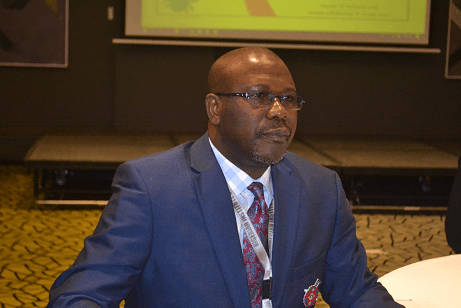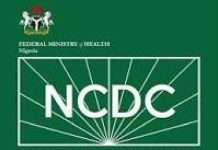Amidst growing concern over the rising cases of chronic kidney diseases especially among young adults in Nigeria, renowned nephrologist and director general of the Nigerian Institute of Medical Research (NIMR), Prof. Babatunde Salako has identified hypertension, diabetes, drug abuse, sickle cell disease and issues relating to human genomics as some of the major factors responsible for the rise of chronic kidney disease in Nigeria.
Salako, who made this disclosure in an exclusive interview with Pharmanews recently in Lagos, also revealed that non-communicable diseases may kill more people in the near future than infectious diseases if the right steps are not taken to tackle them.

He disclosed that cases of chronic kidney disease were quite common among young Nigerian adults, leading to the untimely death of many breadwinners.
While disclosing that NIMR was involved with a consortium looking at the relationship between human genomics and chronic kidney disease, Salako also mentioned the discovery of a gene in black people which appear to predispose them more to chronic kidney disease than their caucasian counterparts.
“What we are looking at is a gene that has been discovered to predispose African-Americans to chronic kidney diseases and appear to spare, in a way, their Caucasian counterparts. So we are looking at the frequency of that gene among Nigerians in different tribes and the environmental supporters of the gene that predispose the individuals to the disease.
“We hope that we might be able to design a better preventive approach for the disease or even come up with the possibility of new treatments after we have completed the research,” he said.
The eminent researcher and former vice chairman of Oyo State branch of the Nigerian Medical Association (NMA), also listed other causes of chronic kidney diseases to include: obstruction in urinary tract, obstruction caused by prostate in men, ovarian cyst in women and stones in kidney.
He also cautioned against the use of bleaching or skin toning creams and cosmetic products containing mercury compounds, as a prolonged use of these could expose individuals to the risk of kidney diseases.
The NIMR DG also called on pharmaceutical companies to invest more on researches in the field of kidney disease management, while advising that greater interest be shown in the area of traditional or alternative medicine for home-grown solutions to the scourge.
Salako also aired his views on the current global outbreak of corona virus and the resurgence of Lassa fever in Nigeria.
Below is the full text of the interview:
Tell us briefly about the current policy of NIMR to focus more on communicable diseases and what informed the policy.
NIMR, over the years, has developed capacity and expertise in infectious diseases which really are the diseases ravaging our population, especially our children, and causing significant morbidity and mortality among them. This is also responsible for our poor health indices, especially in the areas of infant and maternal mortality. The institution has not been doing much of what we call non-communicable diseases’ research.
The institution is supposed, under its mandate, to conduct research on diseases of public health importance – meaning, again, diseases that are causing significant morbidity or mortality among the Nigerian population and NCDs (Non-communicable diseases) are a group of such conditions. For example, hypertension, cancer, diabetes, sickle cell and kidney disease are all diseases that can be categorised under NCDs and they also cause a lot of havoc and we are supposed to be an institute of medical research.
So it stands to common reason that we should also be involved in conducting research on NCDs. More so, it’s been shown that NCDs are likely to cause more deaths than infectious diseases in the next few years, maybe in the next ten years. So we need to begin to look at the Nigerian situation in terms of NCDs. What are our peculiarities? So that they don’t just bring research findings from elsewhere and extend it to us. This may not be as effective as Nigerian reports that can inform our own policies and strategies against those diseases.
Talking about these non-communicable diseases, are there specific ones that NIMR is currently working on?
We are currently working on chronic kidney disease. Again it’s a disease that is quite common among young adults. And it kills a lot of family breadwinners. So we are involved with a consortium called Human Heredity in health consortium. We are looking at the causes of chronic kidney diseases in relation to human genomics in Nigeria.
NIMR is one of the several centres in Nigeria that are looking at this. What we are looking at is a gene that has been discovered to predispose African-Americans in America to chronic kidney diseases and appear to spare, in a way, their Caucasian counterparts. So, we are looking at the frequency of that gene among Nigerians in different tribes and the environmental supporters of the gene that predispose the individual to the disease.
We hope that we might be able to design a better preventive approach for the disease or even come up with the possibility of new treatments after we have completed the research.
We are also looking at human papilloma virus, which is an agent that causes cervical cancer. We are looking at its prevalence among our women, its strains in the general genotype of patients that present with such ailments and the role of immunisation against the disease.
What is the prevalence rate of chronic kidney disease in Nigeria and are there specific lifestyle habits that predispose people to it?
Kidney diseases, especially chronic kidney diseases, are caused mainly by hypertension and diabetes. But there are other causes like sickle cell disease, drug abuse, like the use of some compounds in our creams, such as mercury-containing compounds in creams for people who wish to tone or bleach. This people run the risk of developing chronic kidney diseases in future after a prolonged use of the products.
Some other common causes like obstruction in the urinary tract, stones in the kidney, obstruction caused by the prostate in men, as well as ovarian cyst in women. We also have the third one, which is the direct infection of the disease called glomerolevarities. These are the common causes of kidney diseases in our environment.
In term of prevalence, we don’t have a national figure but we have pockets of studies that have been done by different researchers all over the country and the prevalence could be at between 20 or 30 per cent, depending on the area.
February 4 was World Cancer Day. In this part of the world, do you think we are doing well in terms of treatment and do you think our pharmaceutical companies are doing fine in terms of research and development of drugs in this area?
Well, in the past, pharmaceutical companies used to sponsor meetings and research in this area. I think there has been a lull in that regards and this might be related to their own marketing experience. I think they should support more of drug development, especially in relation to our traditional medicine.
Quite a number of claims here and there. I think the pharmaceutical companies need to venture into some of those claims; perhaps we might be lucky to verify and turn one or two of them into something useful that can be turned into orthodox medicine. We need to develop our traditional medicine because it is more related to Pharmacy.
In terms of treatment available for cancer, pharmaceuticals companies are involved in ensuring that drugs for cancer treatment are available. It’s just that affordability is a challenge. The drugs are available but they are expensive and the patients may need to take them over a long period of time. Sometimes the people involved may not even be able to afford first phase surgery, not to talk of second phrase surgery.
Perhaps, the one that ordinary people have in mind is radiation therapy. There are not many radiation therapy centres in Nigeria and those that we have are not functioning optimally.
I’m aware that government is building radiation therapy centres in most of our hospitals to ensure that we have at least one centre in each of the geo-political zones. In some of them, they are changing the radiotherapy machines. They are also buying some other forms of radiotherapy treatment. It may not be enough. Government should support more of public-private partnership.
Government should encourage private people to go into the establishment of radiotherapy centres – in conjunction with the hospitals or on their own as a hospital. Government cannot do everything but they can create an enabling environment for those who wish to create such centres. This will also help to create job for people, while creating accessibility to radiotherapy and prolonging people’s lives.
So I think there is need for a liberalisation of some sort about the establishment of radiotherapy outfits.
Concerning the coronavirus currently trending on the global health scene, what can you say about our state of preparedness in Nigeria?
First and foremost, I need to say that there is a lot of panic and hype about coronavirus. Yes, the WHO has declared it a disease that the world should pay attention to. But coronavirus’ fatality is not as bad as Ebola; probably half the fatality rate of Lassa fever. So there is a need to let the world know that there is a disease called coronavirus killing people but it’s not as bad as Ebola in terms of mortality, so that people won’t panic unduly. Otherwise all sorts of treatments and suggestions will be flying all around in the social media and that may even be very injurious.
Having said that, it’s a disease that people need to look out for because it has a public health implication, especially considering our population in Nigeria. Many of our big cities are choked already. We cannot afford to have that kind of infection here. I believe the nation is making preparations prevent any outbreak or spread. The Federal Ministry of Health is working through the Nigerian Center for Disease Control (CDC), Lagos State Ministry of Health and NIMR.
We have the capacity to screen and diagnose the virus. So, making diagnosis is not a problem. What we require is a coordinated approach in case we have a case. We need an isolation centre and we need all the preparation gadgets required to manage such situation, which I believe the CDC already has. They are battle ready.
Why do we have a resurgence of Lassa fever in Nigeria?
I think the only thing that can answer that question is research, which we are trying to do but are limited by funds. The CDC is ready and using public enlightenment approach to curb the spread, provide diagnostics, capacity and treatment.
Research needs to answer the question on why we have the current outbreak. Outbreak of Lassa fever has been shown to come up usually around the dry season and a few human behaviours have been noted though not seriously studied to confirm. For example the part where people spread cassava or yam powder on the roads near the bush where vectors, such as rats that are known to cause Lassa can easily approach and have contact with the food and they go back and pack these contaminated substances as foods. That process is known to be more prevalent in dry season.
The other activity is bush burning. During dry season, people just put fire into bushes. This can push rodents out to start having contacts with people who live around such suburb and this aids the transmission of Lassa fever. These are two reasons I believe we need to study.
We also need to study the attitude, beliefs and practices of the communities about the disease. Perhaps, we may come up with a common practice that may relate to the spread of Lassa. We also need to look at the vectors. Is it just the rats alone or are there other means? We have carried out our research in Ondo State and we found out that there are human carriers of Lassa. So human-to-human transmission of Lassa occurs as a result of that but maybe not as frequent as we see. We need to determine the role of these in the transmission and outbreak of Lassa fever.
It’s important for government to put in place a dedicated Lassa research fund if we have to clear recurrent outbreak of the disease. That has to happen, otherwise we are going to be doing this “fire brigade” or reactionary approach. Why is it seasonal? Is not something we can break? What do we need? Of course, we need funds to go to the field. This is my view. I believe that if we have funds today and you put a call to all the universities and call for a proposal that will specifically address the outbreaks and how to eradicate or reduce the incidences – there are people in our universities with bright ideas – I am sure within the next two to three years, we may be able to come up with what we need to do to eradicate or reduce the incidences of Lassa fever.
What message do you have for healthcare practitioners in a resource limited country like Nigeria, given your years of experience within the Nigerian healthcare space?
We, I think it’s simple. We, who practise in the system, must learn to believe in the system and patronise the system. We must also make judicious use of those little resources we have in the system. If we have equipment and the people’s attitude is wrong, it will be like we don’t have the equipment. So let us maximize the use of our resources in terms of equipment or manpower.
Let’s stop saying we don’t have this, we don’t have that. What about the ones we have? Have we put them into judicious use? Have we ensured that human attitude does not serve as deterrent from accessing the services we can render?
I also would like us to have sustained harmony within the healthcare system. When we take turns to go on strike action, like a relay race, it won’t help the situation. Today, the doctors go on strike, tomorrow, the nurses; and so on. It affects the people. But I think the rate of strike seems to have gone down a little and all stakeholders need to work hard to maintain industrial peace, so that we can have improved access to healthcare for the population.
If we don’t have harmony and the right attitude, not much will be achieved. Even if we have all the money to buy all the equipment, if we don’t have the right attitude not much would be achieved.
Let’s make judicious use of what we have, while making peaceful efforts to get more.










